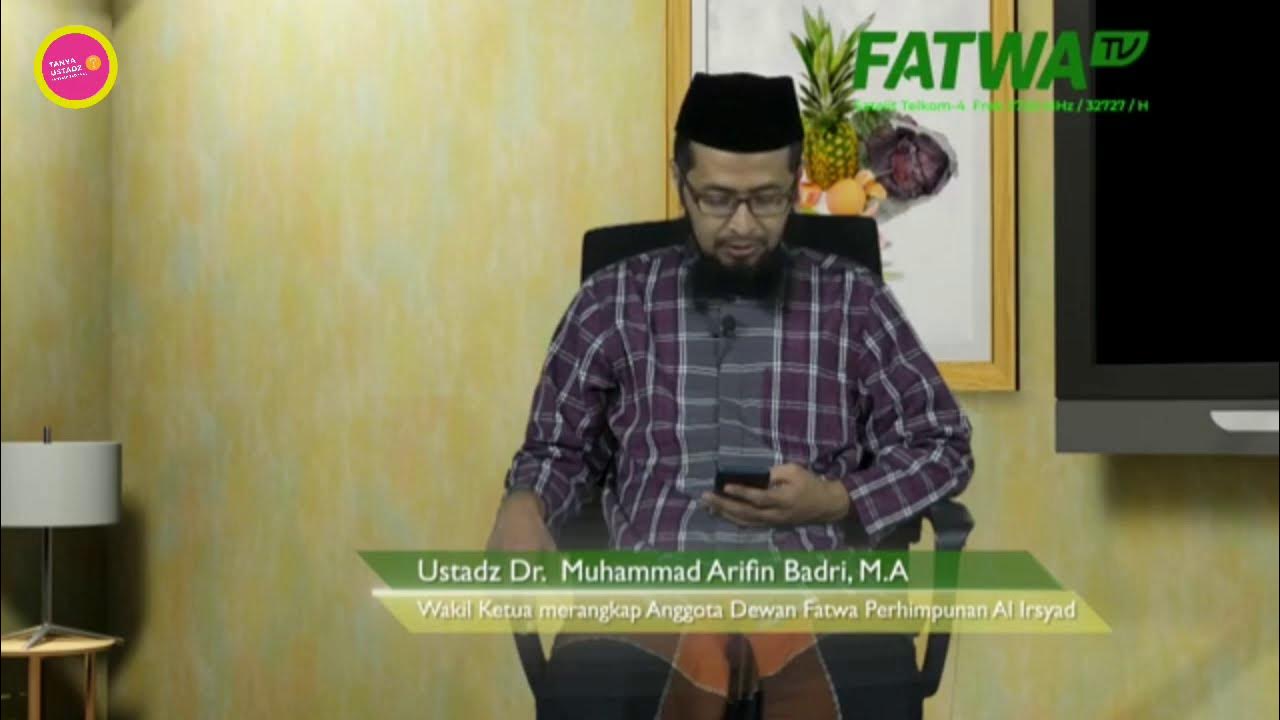03 Bab tentang bejana , Kitab Manhajus Saalikin
Summary
TLDRIn this lecture, the speaker discusses the Islamic rulings on using kitchen utensils, specifically focusing on the permissibility of vessels made from gold and silver. It is forbidden to use utensils made of these precious metals for eating, drinking, or cooking, based on a hadith of the Prophet Muhammad (PBUH). However, an exception exists for using small amounts of silver to repair cracked or damaged utensils, as long as it’s necessary. The lecture also emphasizes that the default ruling for utensils is permissibility, except for those made from gold and silver, which are prohibited. The speaker concludes with a reminder to focus on these important points.
Takeaways
- 😀 The general rule for vessels is that they are permissible to use unless made of gold or silver.
- 😀 Vessels made from gold or silver are prohibited for eating, drinking, or cooking in Islam.
- 😀 The use of vessels made of gold or silver is reserved for the disbelievers in this world, according to Islamic teachings.
- 😀 A small amount of silver can be used to patch or repair broken kitchen utensils, but it should be minimal.
- 😀 The exception for using silver is allowed when it is needed to repair kitchen equipment with cracks or holes.
- 😀 The Sharia provides a concession (rukhsah) for using a small amount of silver when repairing kitchen utensils.
- 😀 Kitchen utensils like frying pans, plates, and pots made of materials like aluminum, iron, or plastic are permissible to use.
- 😀 The law of origin for vessels is permissibility, meaning they are allowed unless they are made of gold or silver.
- 😀 Islamic law strictly prohibits drinking from or eating from vessels made of gold or silver.
- 😀 The hadith warns against using gold or silver utensils, highlighting that they are intended for the disbelievers in this world.
- 😀 The key takeaway is that silver can be used in small amounts for repairing utensils but not for making them or for regular use.
Q & A
What is the main topic of the lesson discussed in the transcript?
-The main topic of the lesson is related to 'Al-Fiqh,' specifically focusing on the chapter about vessels and their permissibility in Islam, with a discussion on items used for eating, drinking, and cooking.
What does 'Babul Aniati' refer to in the context of this lesson?
-'Babul Aniati' refers to the chapter about vessels or equipment used for eating, drinking, or cooking, such as frying pans, pots, plates, and glasses.
What is the general ruling on the permissibility of using vessels?
-The general ruling is that vessels are permissible to be used unless they are made of gold or silver or contain a mixture of these metals, in which case their use is prohibited except under specific exceptions.
Why are vessels made of gold and silver prohibited in Islam?
-Vessels made of gold and silver are prohibited because the Prophet Muhammad (PBUH) instructed that Muslims should not use these materials for eating or drinking, as they are considered to be for the disbelievers in this world, while Muslims have blessings reserved for them in the afterlife.
Is there any exception to the prohibition of using gold and silver vessels?
-Yes, an exception exists for using small amounts of silver, for example, to patch or repair a broken vessel. This is allowed only when the silver content is minimal and necessary.
What did the Prophet Muhammad (PBUH) say about using gold and silver vessels?
-The Prophet Muhammad (PBUH) forbade drinking from vessels made of gold and silver and eating from plates made of these materials, as they are for the disbelievers in this world, while the believers have their rewards in the hereafter.
Can vessels made from materials other than gold and silver be used?
-Yes, vessels made from materials such as aluminum, plastic, iron alloy, or other non-gold and non-silver materials are permissible to use for eating, drinking, and cooking.
What is the ruling on using silver to patch a broken vessel?
-It is permissible to use a small amount of silver to patch a broken vessel, but the silver content must be minimal and the repair should be for a valid need.
What is the original ruling on the permissibility of using vessels in general?
-The original ruling on vessels is that they are permissible to use, as long as they do not violate the prohibitions, such as being made of gold or silver.
How does Islamic law provide a 'rukhsah' or concession regarding the use of silver in vessels?
-Islamic law provides a concession (rukhsah) for using a small amount of silver, but only when necessary to repair or patch a broken vessel. This is allowed if the silver content does not dominate the vessel and is used in accordance with the needs of the situation.
Outlines

このセクションは有料ユーザー限定です。 アクセスするには、アップグレードをお願いします。
今すぐアップグレードMindmap

このセクションは有料ユーザー限定です。 アクセスするには、アップグレードをお願いします。
今すぐアップグレードKeywords

このセクションは有料ユーザー限定です。 アクセスするには、アップグレードをお願いします。
今すぐアップグレードHighlights

このセクションは有料ユーザー限定です。 アクセスするには、アップグレードをお願いします。
今すぐアップグレードTranscripts

このセクションは有料ユーザー限定です。 アクセスするには、アップグレードをお願いします。
今すぐアップグレード関連動画をさらに表示

Hukum Jual Beli Emas secara Online di Masa Pandemi | Dr. Muhammad Arifin Baderi, MA

HUKUM MUSIK ITU HALAL ATAU HARAM ? | USTADZ SYAFIQ RIZA BASALAMAH

MMJ 18. Daftar Data Onta untuk bayar diat dalam Jarimah Pembunuhan Tersalah

(Eps.1) Belajar Ushul Fiqih Dasar Kitab Mabadi Awaliyah

اسئلة عن الالعاب

Fikih Thaharah - Materi 01 Mukadimah Dan Pembahasan Air
5.0 / 5 (0 votes)
